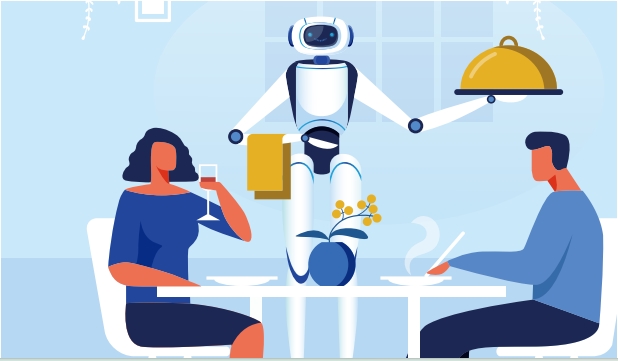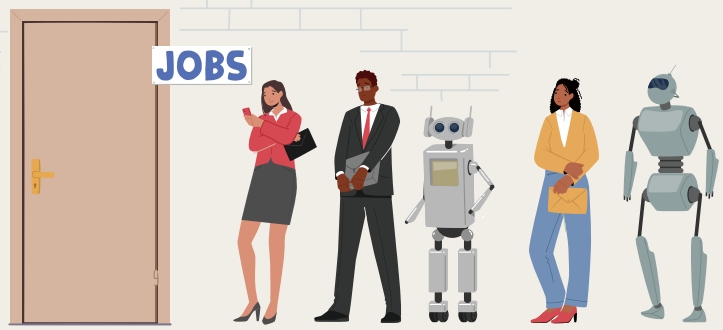
Emily Hanley rubs her face, then takes a breath. “I recently lost my job to AI,” she says, in a video she shared on TikTok. She was a copywriter, or someone who writes the text for brands’ webpages, online articles, email campaigns, and other marketing materials. New generative AI tools such as OpenAI’s ChatGPT, Google’s Bard, or Baidu’s Ernie excel at generating text for all sorts of purposes, including this one. Generative AI can also write code. And it’s far cheaper than hiring a person to do the same thing. In an article for Business Insider about the ordeal, Hanley wrote, “While I and countless other out-of-work copywriters are the first wave of AI collateral, the collapse of my profession is probably just the tip of the AI iceberg. ”
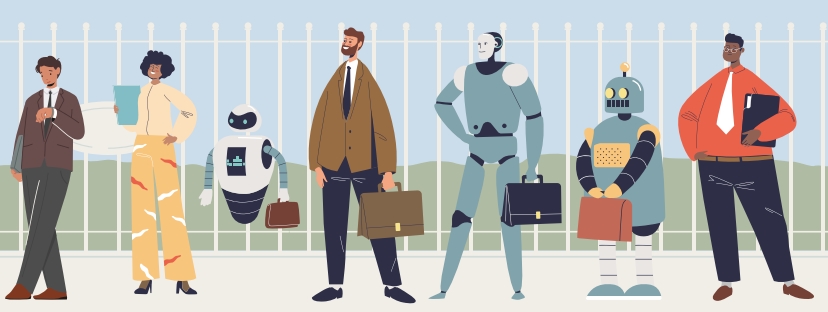
A May 2023 report by Challenger, Gray & Christmas tallied 3,900 job cuts due to AI. This amounted to close to 5 percent of all job cuts that month. And in July 2023, Hollywood actors and writers went on strike. One of their demands was for tighter regulations on the use of AI in developing content. In addition to writing creative scenes or scripts, generative AI can also fill in extras in a scene, mimic a particular actor’s likeness or voice or even create new digital actors who don’t actually exist. Plus, it can generate music. Other types of AI excel at driving cars, detecting cancer in medical images, and much more.
Is AI really leading to a collapse of the workforce? Will robots replace all of us someday?
This Is Not a Robot Takeover (Yet)
Clearly, AI is already replacing certain jobs. A report by The World Economic Forum predicts that automation (a combination of robotics and AI) will replace people in eighty-five million jobs by 2025. But this is not a robot takeover—this is a transformation. The same World Economic Forum report predicts that AI will lead to the creation of ninety-seven million new jobs in the same time frame. That’s many more jobs created than lost. AI also has the potential to make people more productive and to lead to the creation of entirely new types of jobs and businesses.
Erik Brynjolfsson, a professor at the Stanford Institute for Human-Centered AI, told the New York Times that most people he talks to about AI are only thinking about how it can accomplish tasks that humans already do. He says he wishes people would think more about “what new things could be done now that were never done before. ”
This type of transformation has happened before . The rise of personal computers and the Internet completely changed the way people shop. Many brick- and-mortar stores went out of business, replaced by e-commerce. In the past, transformative new technology has always triggered a productivity boom.
Some argue that this time things are different, since AI takes over the task of thinking and problem-solving. Many experts think that in several more decades, we are likely to have a form of AI, called Artificial General Intelligence (AGI), capable of learning any task that a person can learn. AGI could hypothetically take over any form of work. However, other experts think AGI is not right around the corner and that AI development will stall or reach a wall.
For now, AI models can only solve the specific tasks that they have been designed for. Plus an AI model’s “thinking” is limited by computing power and access to large data sets to learn from. But as Hanley knows all too well, AI still has the power to transform the way we work. Let’s find out how.
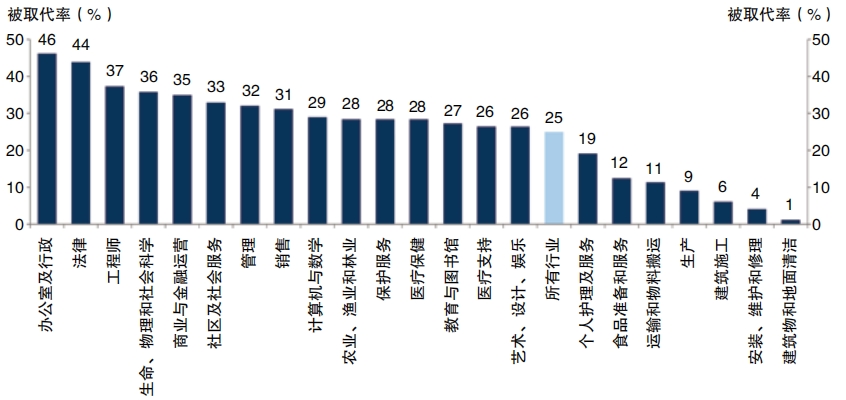
AI Advantages
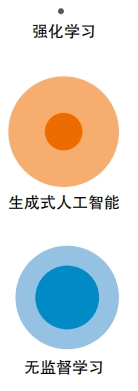
AI offers some clear benefits to companies . It is already increasing productivity and revenue. In a 2021 survey, SambaNova asked business leaders about the use of AI at their organizations. And 78 percent of them said that AI and machine learning (a type of AI that includes generative AI) were very important for driving revenue. That percentage has almost certainly risen since the launch of ChatGPT. Grand View Research predicts that the global AI market—worth $136.55 billion in 2022—will grow at an annual rate of 37 percent from 2023 through 2030.
Human employees require lunch breaks, bathroom breaks, and weekends and vacations away from work. Their job performance can be unpredictable, often due to emotions such as anger, boredom, jealousy, or sadness. AI models work around the clock and don’t feel emotion, so they are more consistent and reliable. An AI-based copywriting tool can spit out hundreds of words in under a minute, it works more quickly and efficiently than people.
People also have biases that impact who they like or dislike and who they trust. These biases contribute to some of society’s biggest problems, including racism, sexism, ableism, and more. When AI learns from biased human data, it exhibits the same biases in its decision making. However, if we design and train AI models very carefully, we could use them to counteract our biases. “The human brain is biased by nature,” says Tomas Chamorro-Premuzi, a psychologist and author of the book, I,Human:AI,Automation,andthe Quest to Reclaim What Makes Us Unique. “But what if we delegate in a smart way certain decisions, training machines to actually mitigate or reduce some of the biases that we inherently bring to the table?”
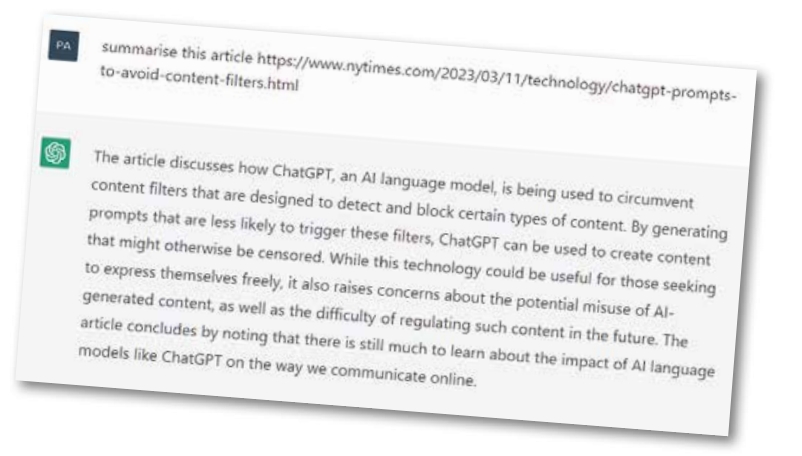
Human Advantages
AI models aren’t good at everything. They only work quickly and efficiently on the tasks they’ve been trained to do. They are best at virtual tasks that involve data analysis or manipulation, pattern detection, or pattern matching. Having a body that evolved over millions of years gives humans a huge advantage. Yes, a biological body needs food and bathroom breaks, but it is also far better at getting around, manipulating objects, and reacting to the world than any robot we can build. Jobs that require working with stuff in the real world often can’t be fully automated.
This means that the types of jobs that are most vulnerable to automation include most desk jobs, including positions in legal, customer service, management, and finance. Jobs in cleaning, maintenance, and construction are much less likely to be automated in the near future.
People also excel at strategic planning and flexible thinking. They can break a high-level task down into a series of smaller tasks and then figure out how to accomplish each task and how to proceed afterwards. If something goes wrong, they can adapt on the fly and come up with a new plan. “No AI system today can do any of this,” says Yann LeCun. A person has to decide when and how to apply AI to a problem and then judge the output.
Judging output is especially important when using generative AI tools such as ChatGPT. These tools weren’t designed to find facts, but to remix language (or code, or artwork, or music) in a way that mimics examples from large databases of human work. They don’t actually understand what they are creating. Because of this, generative AI tends to “hallucinate,” or invent information that seems factual but isn’t. Soon after ChatGPT launched, the media company CNET began using it to write articles giving financial advice. People soon noticed that these stories were packed with errors. A few months later, in June 2023, two lawyers got in trouble for quoting from six court cases that never actually happened. ChatGPT had provided the information. One of the lawyers, Steven Schwartz of the firm Levidow, Levidow, & Oberman in New York, wrote that he had never used ChatGPT as a source for legal information before, and was “unaware of the possibility that its content could be false.”
Human emotions can be a positive as well. When we feel joy, excitement, curiosity, inspiration, and other positive emotions, we can make great leaps of invention and discovery. Skilled human artists, writers, actors, and others still produce work of a much higher quality than AI. In addition, people are still better than machines at empathizing with and understanding other people. Chatbots are getting much better at mimicking friendliness and emotion, to the point that some people really enjoy interacting with them. However, most people still want connections with other humans. Even if an AI model or robot could do the work of a teacher, doctor, or world leader very competently, people may not want machines in these roles.
Skills for Success
Skills that can’t be easily automated, such as skills in construction, maintenance, or repair, will help workers succeed in today’s AI-driven world. Emotional intelligence and people skills are also very important. However, the most important skill of all is probably a willingness to learn about and experiment with new technology as it emerges. This requires curiosity, creativity, flexibility, and the ability to learn from mistakes.
People who understand how to build, train, or utilize AI effectively will outpace those who avoid the new tech. When the Internet transformed the world, businesses that adapted quickly managed to survive. The same sort of transition is happening now.
After ChatGPT took the world by storm in late 2022 and early 2023, a new position began appearing on job boards. Companies were looking for “prompt engineers,” or people who know how to get generative AI models to provide the kind of output that a business needs. The company Anthropic, an AI research firm based in San Francisco, California, offered a salary of over $250,000 per year for the role!
When Emily Hanley went looking for a new job, she landed an interview for a short-term position that involved training an AI model to do the workshe used to do. She didn’t get that job, but this type of role will become more common in the future. “Expertise is changing,” says Chamorro-Premuzi. “It’s transitioning from knowing the answers to a lot of questions to knowing how to ask the right questions. ”
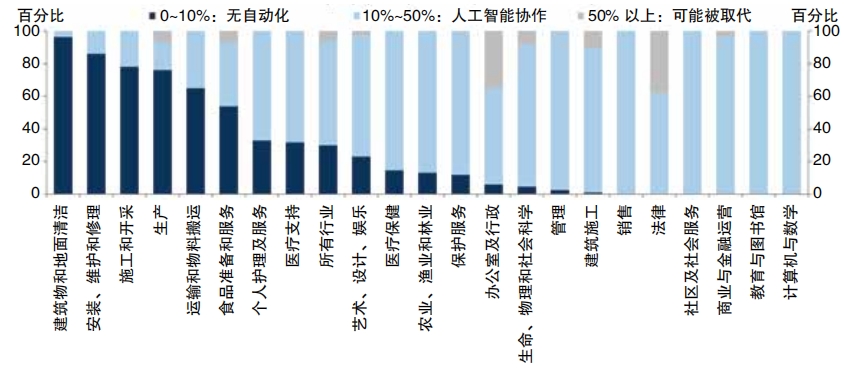
The most successful workers of the future may not have specific skills or expert knowledge. Rather, they will know how to ask the right questions and find ways that AI can help them be more effective, more productive, or more creative. Chamorro- Premuzi says, “The main point of actually having algorithmic automation or AI take care of tasks that are predictable is to free up human imagination, to devote ourselves to more creative and fulfilling tasks. ”
Stronger Together
As the ones who design and build AI, we get to decide how to incorporate it into our lives. Just because an AI model can take over a certain task doesn’t mean it will. In the game of chess, AI has been able to beat the greatest grandmasters since Deep Blue defeated Garry Kasparov in 1997. Yet people still play the game. In fact, the game has arguably gotten more interesting now that AI-driven chess engines can provide analysis of game states and moves. AI has revealed new strategies that have improved the way people play.
When it comes to generative AI, experts and governments have been pushing for AI regulation to make sure these tools are implemented in a way that is beneficial for society. Regulators are looking for ways to avoid or punish issues including: AI infringing on artists’ copyrights, AI spreading misinformation, and AI perpetuating harmful biases.
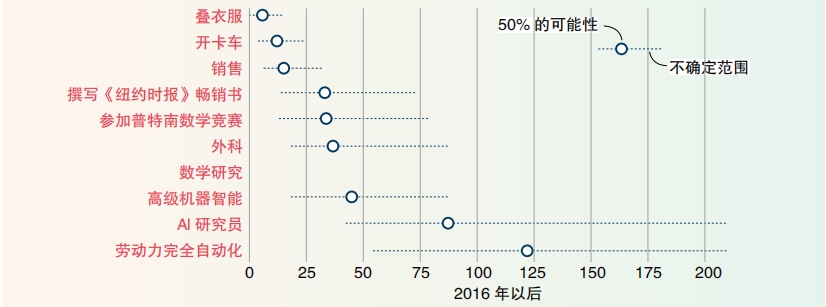
Meanwhile, not all artists, writers, and other creators dread the rise of AI. Some are embracing it. In 2023, the media company BuzzFeed announced that it was going to use generative AI to help develop quizzes for its website. One approach they were considering was that a person would write a quiz and then the AI could spit out an infinite variety of answers tailored to the individual taking the quiz. “Ithink the actual applications of how this will apply to new quiz formats is exciting,” a BuzzFeed staffer, who chose to remain anonymous, told Business Insider. AI would be doing something that human writers can’t do. And human creators would still be involved in the process.
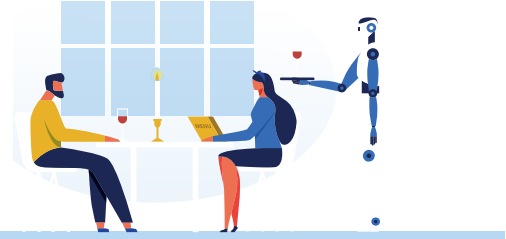
This is a perfect example of the kind of transformation AI can bring to the world of work. Very few jobs are likely to become 100 percent automated. Rather, AI will be integrated into the workflow. Yes, AI will replace some human workers. But human work could also improve greatly with the help of AI.
In several decades, as AI becomes more and more capable, it’s possible that fewer and fewer people will work. In this type of a world, society will have to change to avoid widespread poverty. One idea is a universal basic income supplied to all people. If people’s basic needs for food and shelter are taken care of, they will likely still work in some capacity, because being productive or creative is important to human happiness. Perhaps people will be able to do whatever work they want—whether that is creating art, farming, conducting curiosity-based research, or participating in sports and games of skill. Together, humans and AI could create a better world of work, one we are all still imagining.
